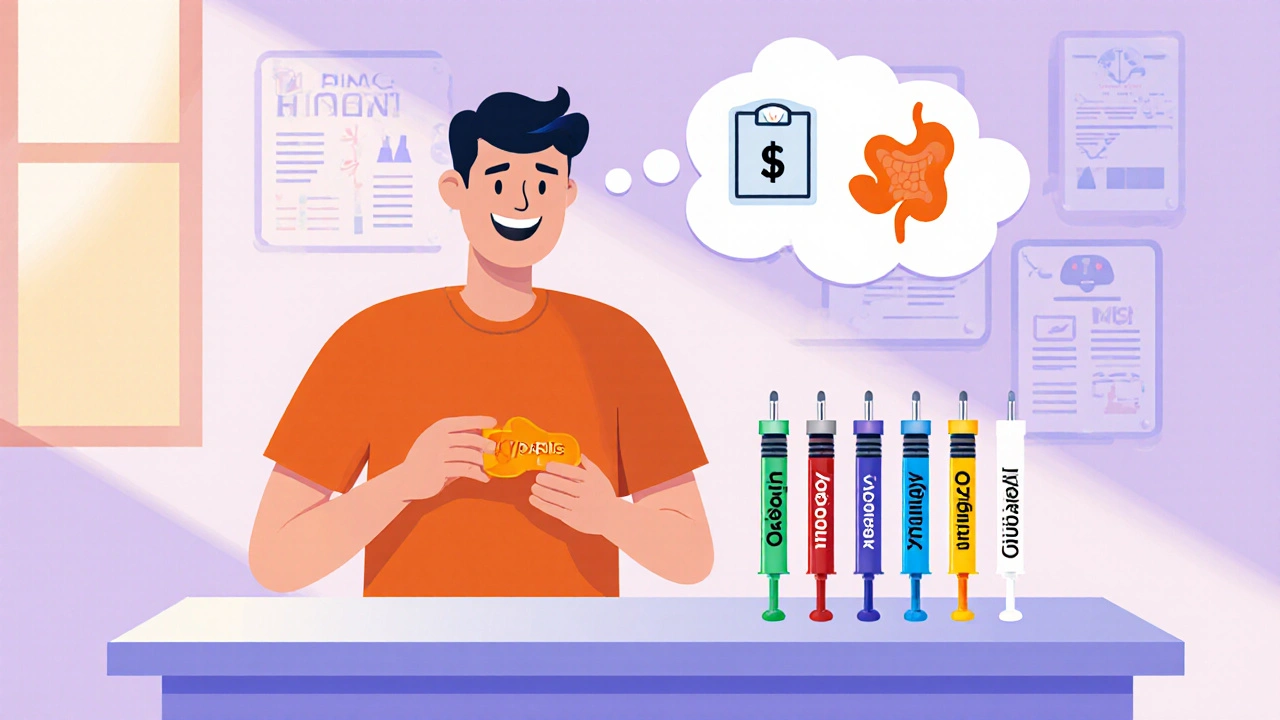GLP-1 Alternatives: Explore Options Beyond Traditional Injectables
When navigating GLP-1 alternatives, non‑injectable or non‑GLP‑1 drugs that help with weight loss and glucose management. Also known as non‑GLP‑1 weight‑loss therapies, they give flexibility to people who can’t or prefer not to use injections.
Key players in the landscape include GLP-1 agonists, injectable hormones such as semaglutide or liraglutide that mimic the natural gut peptide, oral formulations like oral semaglutide, the first pill‑based GLP‑1 approved for obesity and type 2 diabetes, and adjacent classes such as SGLT2 inhibitors, drugs that lower blood sugar by blocking its reabsorption in the kidneys and DPP‑4 inhibitors, agents that prolong the action of endogenous GLP‑1. GLP-1 alternatives therefore cover a broad spectrum of mechanisms, delivery routes, and patient profiles.
What Makes an Alternative Viable?
First, the route of administration matters. Oral agents remove the needle fear and can be integrated into daily routines, which often improves adherence. Second, efficacy is measured by weight‑loss percentages and HbA1c reduction. For example, oral semaglutide achieves about 5‑6 % weight loss, while SGLT2 inhibitors typically add a modest 2‑3 % loss but provide extra cardiovascular benefits. Third, side‑effect profiles differ: GLP‑1 agonists often cause nausea, SGLT2 inhibitors can increase urinary tract infection risk, and DPP‑4 inhibitors are usually well‑tolerated but offer less dramatic weight change.
These attributes create clear semantic connections: GLP-1 alternatives encompass oral agents, combination therapies, and lifestyle strategies; oral semaglutide requires no injection, enabling better patient compliance; SGLT2 inhibitors influence kidney glucose reabsorption, supplementing the GLP‑1 pathway. Understanding these triples helps you match the right drug to the right person.
When to consider an alternative? Patients who have tried injectable GLP‑1 agonists and experience intolerable nausea often switch to oral semaglutide or an SGLT2 inhibitor. Those with chronic kidney disease may favor DPP‑4 inhibitors because of their renal safety. Bariatric surgery candidates sometimes combine a low‑dose GLP‑1 alternative with lifestyle coaching to maximize results. In every case, the decision hinges on efficacy, safety, and personal preference.
Below you’ll find a curated set of articles that break down each class, compare costs, list side‑effects, and suggest practical ways to incorporate these options into a treatment plan. Dive in to see how the right GLP‑1 alternative can fit your health goals and simplify your daily routine.

Rybelsus (Semaglutide) vs. Other GLP‑1 Drugs: Complete Comparison
A detailed side‑by‑side review of Rybelsus (semaglutide) versus other GLP‑1 drugs, covering efficacy, safety, cost and how to choose the right option.
